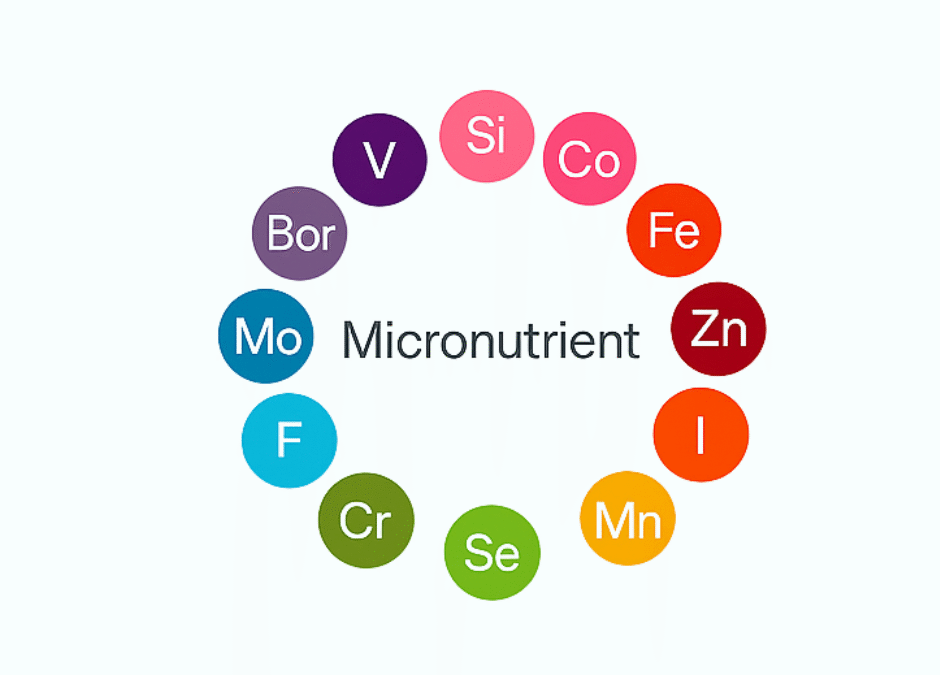Zinc, Selenium, B12 and Thyroid Disease: What You Need to Know
When it comes to thyroid health, most people think about TSH, T4, T3, antibodies, and medication adjustments. However, key nutrient deficiencies can quietly disrupt how well your thyroid functions. Because of this, many patients continue to struggle with fatigue, weight changes, hair loss, cold intolerance, or brain fog even when their medication is “optimized.”
Today, let’s break down how zinc, selenium, and vitamin B12 affect thyroid function and why nutrient testing is one of the most overlooked steps in restoring balance.
How Zinc Supports Thyroid Function
Zinc is essential for both the production and conversion of thyroid hormones. Without enough zinc, your body struggles to convert T4 into active T3. This often leads to symptoms such as:
-
Low energy
-
Dry skin
-
Difficulty losing weight
-
Hair thinning
-
Weakened immunity
Even more importantly, zinc helps regulate TSH levels. Therefore, a deficiency may make your labs appear “off” even if your thyroid gland is trying to function correctly.
Why Selenium Is a Game-Changer
Selenium is required for enzymes called deiodinases, which convert T4 into T3. It also plays a major role in protecting thyroid tissue from inflammation. Patients with Hashimoto’s especially need optimal selenium for antioxidant protection.
Common signs of selenium deficiency include:
-
Hair loss
-
Brittle nails
-
Mood changes
-
Thyroid tenderness
-
Elevated reverse T3
Furthermore, many soil regions in the United States (including the South) are selenium-poor, making deficiency more likely than most people realize.
The Overlooked Role of Vitamin B12
B12 is essential for healthy nerves, red blood cell formation, and overall metabolism. Yet it’s also deeply tied to thyroid health. Deficiency can worsen:
-
Fatigue
-
Cold intolerance
-
Brain fog
-
Tingling or numbness
-
Exercise intolerance
Hypothyroidism slows stomach acid production, and as a result, many patients gradually develop difficulty absorbing B12. This becomes a cycle: low B12 makes thyroid symptoms worse, and thyroid dysfunction makes B12 deficiency more common.
How These Deficiencies Affect Thyroid Labs
Low zinc, selenium, or B12 may contribute to:
-
High TSH
-
Low T3
-
High reverse T3
-
Persistent symptoms despite normal labs
-
Worsening autoimmune markers
Because of this, nutrient testing becomes an essential piece of the thyroid puzzle.
Do You Need Nutrient Testing?
If you have any of the following, testing may be valuable:
-
Diagnosed hypothyroidism or Hashimoto’s
-
Persistent symptoms despite medication
-
Hair loss or brittle nails
-
Weight gain or slowed metabolism
-
Fatigue or low mood
-
Difficulty concentrating
-
Long-standing digestive issues
A simple blood test can show whether your thyroid needs nutritional support in addition to medication or lifestyle adjustments.
Order Your Zinc, Selenium, and B12 Labs Through Whitehouse Family Medical
At Whitehouse Family Medical, we offer affordable self-pay nutrient panels with no insurance required and same-day availability. Testing includes:
-
Zinc
-
Selenium
-
Vitamin B12
-
Folate
-
Ferritin
-
Vitamin D
-
Complete Thyroid Panel (TSH, Free T4, Free T3, Reverse T3, TPO, TgAb)
You deserve to feel like yourself again. And sometimes the answers are hiding in the nutrients no one is checking.
👉 Order labs here:
https://whitehousefamilymedical.com/self-pay-lab-services/
👉 Or call us: 903-202-7002

